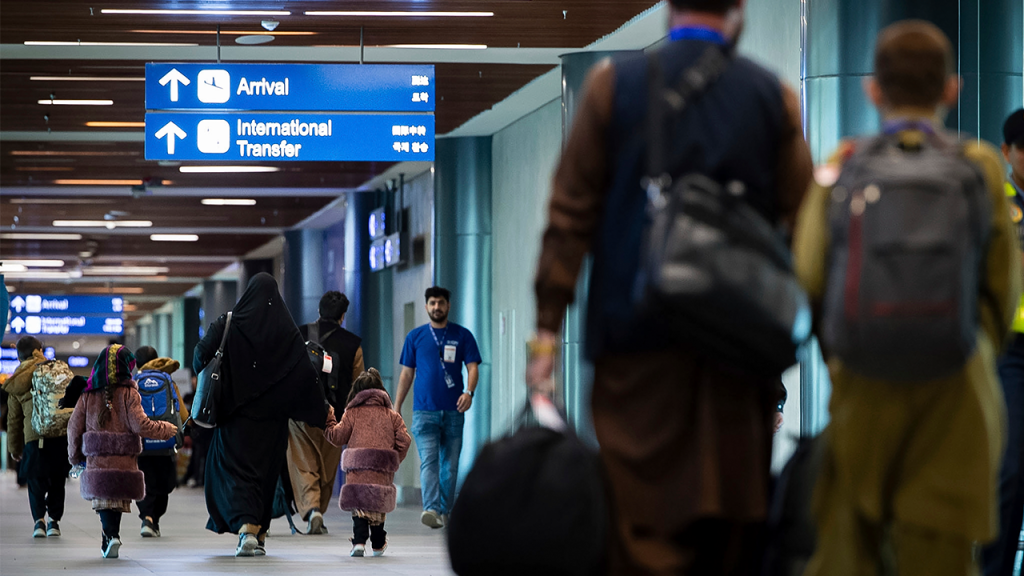The arrival of Afghan nationals in the Philippines marks a significant step in their journey towards resettlement in the United States. This development is the culmination of an agreement forged between the Philippine and U.S. governments, wherein the Philippines consented to temporarily host a U.S. immigrant visa processing center for a select group of Afghan nationals. These individuals, who primarily served the U.S. government in Afghanistan or qualify for special immigrant visas, were left behind during the tumultuous withdrawal of U.S. troops and civilians in 2021. This agreement underscores the continuing efforts to provide a pathway to safety and a new life for those Afghans who assisted the U.S. mission and are now seeking refuge.
The Philippines has implemented stringent measures to ensure the safety and well-being of both the Afghan nationals and its own citizens. Each individual underwent comprehensive security vetting and thorough medical screenings prior to their arrival. This meticulous process aims to mitigate any potential security risks and safeguard public health. The U.S. government has committed to bearing all expenses associated with the Afghans’ stay, including food, housing, security, medical care, and transportation. This financial commitment underscores the U.S.’s responsibility towards these individuals and its dedication to ensuring a smooth transition during their temporary stay in the Philippines.
While the exact number of Afghan arrivals and the precise duration of the visa processing remain undisclosed, the Philippines has established a 59-day limit for visa applicants. Previous estimates indicated that the program would accommodate between 150 and 300 applicants under this “one-time” arrangement. This limited scope highlights the unique nature of this agreement and suggests it is not intended to become a permanent solution for Afghan resettlement. The focus is clearly on processing a specific group of individuals who have already been identified and vetted.
The agreement to host the processing center reflects the strengthening ties between the U.S. and the Philippines. The request was initially put forth by Secretary of State Antony Blinken in 2022 and later reinforced by President Biden during a meeting with Philippine President Ferdinand Marcos Jr. This diplomatic effort underscores the importance of the U.S.-Philippine relationship in addressing complex global challenges. For the Philippines, this agreement represents an opportunity to contribute to humanitarian efforts and further solidify its relationship with the U.S.
The decision by the Philippines to host the processing center comes amidst a backdrop of evolving geopolitical dynamics in the region. President Marcos Jr. has actively pursued a renewed engagement with the U.S., marked by increased military cooperation and a reaffirmation of existing defense agreements. This strengthened alliance has not been without its critics, particularly China, which views the expanding U.S. military presence in the region with concern. The agreement regarding the Afghan visa processing center, while primarily humanitarian in nature, inevitably adds another layer to the complex interplay of international relations in the region.
The ongoing efforts to resettle Afghan nationals who supported the U.S. mission represent a continued commitment to those who risked their lives and livelihoods. The Philippines’ role in facilitating this process, while temporary and limited in scope, is a significant contribution to this ongoing effort. It highlights the complexities of international relations and the enduring need for collaboration and cooperation in addressing global challenges. The agreement serves as a testament to the importance of diplomacy and the potential for nations to work together in addressing humanitarian crises and providing refuge for those in need.


